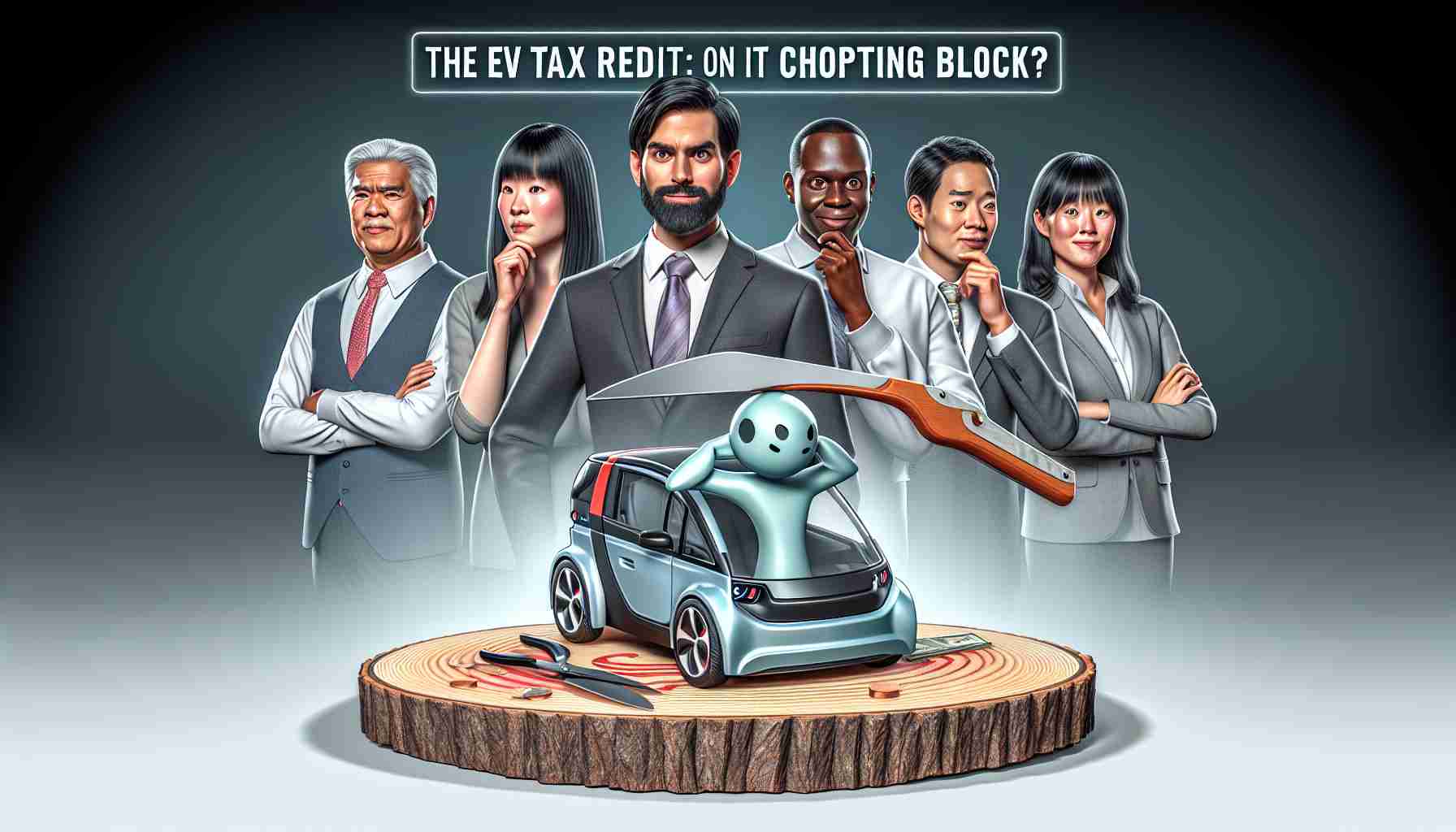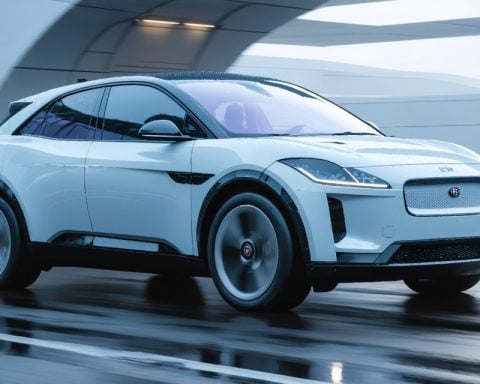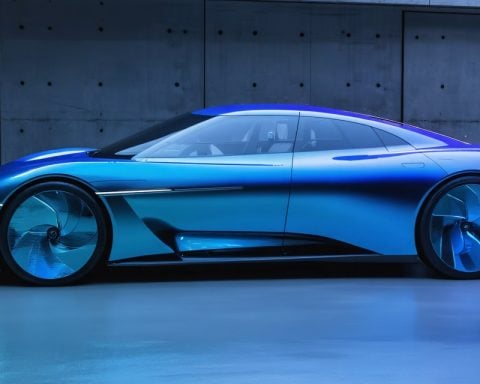The federal electric vehicle (EV) tax credit remains intact for now, but skepticism surrounds its future. Currently, new purchases benefit from a tax credit of $7,500, while used EVs garner $4,500, thanks to legislation passed through the Inflation Reduction Act. However, recent discussions suggest that the political winds may be shifting against this financial incentive.
After gaining full control in Washington, Republican legislators, led by Donald Trump, have expressed intentions to dismantle the tax credit. Despite previous attempts falling flat under Democratic leadership, the current majority could change the landscape. Political maneuvering is expected to unfold slowly, involving extensive negotiations and analysis before any final decisions are made.
Industry experts are voicing concerns over the ramifications such changes could bring. As the auto sector braces for possible upheaval, there’s speculation that removing the tax credit will increase the cost of EVs, discouraging consumers and stifling market growth. Automakers are seeking stability amidst this uncertainty, yet Trump’s plans to impose tariffs could exacerbate the situation, complicating international supply chains and potentially leading to job losses.
Meanwhile, some Republican lawmakers are cautioning against hasty actions, arguing that the tax incentives have fostered significant clean energy investments. With the future of the EV market hanging in the balance, the coming months are crucial as stakeholders await clarity on how policies will evolve.
The Broader Implications of EV Tax Credits on Society and the Environment
The debate surrounding the federal electric vehicle (EV) tax credit goes beyond mere economics; it touches on the very fabric of societal values and aspirations for a sustainable future. The incentives currently in place have not only catalyzed an increasing consumer demand for EVs but have also sparked significant investment in clean energy technologies. As automakers pivot towards more sustainable practices, the tax credit has played a vital role in shaping consumer behavior and accelerating the transition from fossil fuels to renewable energy sources, which is a cornerstone of climate action.
The potential repeal of these credits could have profound implications for the global economy. The automotive industry—a critical driver of job creation—could face a slowdown, potentially leading to significant layoffs. This uncertainty could ripple through supply chains that depend on steady demand for EVs, affecting manufacturers and workers alike. Furthermore, the ongoing shift toward electric mobility is intrinsically linked to emerging markets in battery manufacturing and renewable energies, which may lose momentum without federal support.
On the environmental front, the current trajectory toward a greener economy is at risk. The viability of EVs is often highlighted in climate discussions; removing financial support may reduce the rate of adoption among consumers who are hesitant about the initial costs. As cities strive to meet environmental goals, the impact of diminished tax incentives could stall progress, ultimately complicating efforts to mitigate climate change and improve air quality.
In summary, as the political landscape which influences these tax credits shifts, the consequences on society, economy, and the environment become increasingly apparent. In the immediate future, stakeholders must navigate this complex scenario while weighing the benefits of long-term clean energy investments against potential political changes.
Will the Federal EV Tax Credit Survive Political Changes? Here’s What You Need to Know
Introduction
The future of the federal electric vehicle (EV) tax credit is under scrutiny as discussions about potential political changes and their implications heat up. Currently offering substantial financial incentives for both new and used electric vehicle buyers, the $7,500 credit for new EVs and $4,500 for used EVs remains in place for now. However, developments in Washington suggest possible adjustments to this crucial policy.
Understanding the Tax Credit Landscape
The EV tax credit, initiated through the Inflation Reduction Act, is designed to spur the adoption of electric vehicles in the United States by reducing the financial burden on consumers. Without the tax breaks, many analysts predict a slower transition to cleaner transportation options.
Current Tax Credit Benefits:
– New EVs: $7,500 tax credit
– Used EVs: $4,500 tax credit
Political Dynamics Affecting the EV Market
With Republicans currently holding the majority, there are indications from some lawmakers that the tax credit may become a target for dismantling. Proponents of eliminating the incentive argue it could free up government funds for other uses, while opponents warn that removing these incentives may dampen the momentum toward clean energy and EV adoption.
Industry Response and Concerns
Automakers are often caught in the crossfire of such political battles. The potential removal of the EV tax credit could push vehicle prices higher, leading to a decline in consumer interest in electric vehicles. Industry experts argue that the credit encourages innovation and investment in sustainable technologies.
Possible Industry Impacts:
– Increased Costs: Removing the tax credit could make EVs less affordable.
– Stifled Growth: Lack of incentives may slow down market expansion.
– Job Losses: Changes in policy could disrupt existing supply chains, especially if tariffs are introduced.
The Role of Tariffs and Their Consequences
Former President Donald Trump’s suggestions to impose tariffs on certain goods could complicate matters further. Already intricate international supply chains may become even more strained, potentially leading to increased vehicle prices and reduced production capabilities.
Perspectives from Lawmakers
Some Republican lawmakers advise caution, highlighting that the tax incentives have played a critical role in fostering clean energy investment. They warn that dismantling the EV tax credit could ultimately be detrimental not just to the auto industry, but to broader sustainability goals.
Trends and Predictions for the EV Market
As these discussions evolve, several trends are emerging within the EV market:
– Increased Demand: Despite political uncertainties, consumer demand for EVs continues to rise.
– Technological Advancements: Innovation in battery technology is making electric vehicles more appealing.
– Sustainability Focus: The push towards environmentally friendly solutions remains a key driver for consumers and manufacturers alike.
Conclusion
The future of the federal EV tax credit hangs in the balance, with significant implications for the auto industry and environmental goals. As stakeholders watch closely, the coming months will be critical for determining whether current incentives will persist or fade away in this rapidly changing political landscape.
For further insights into EV policies and trends, visit U.S. Department of Energy.














